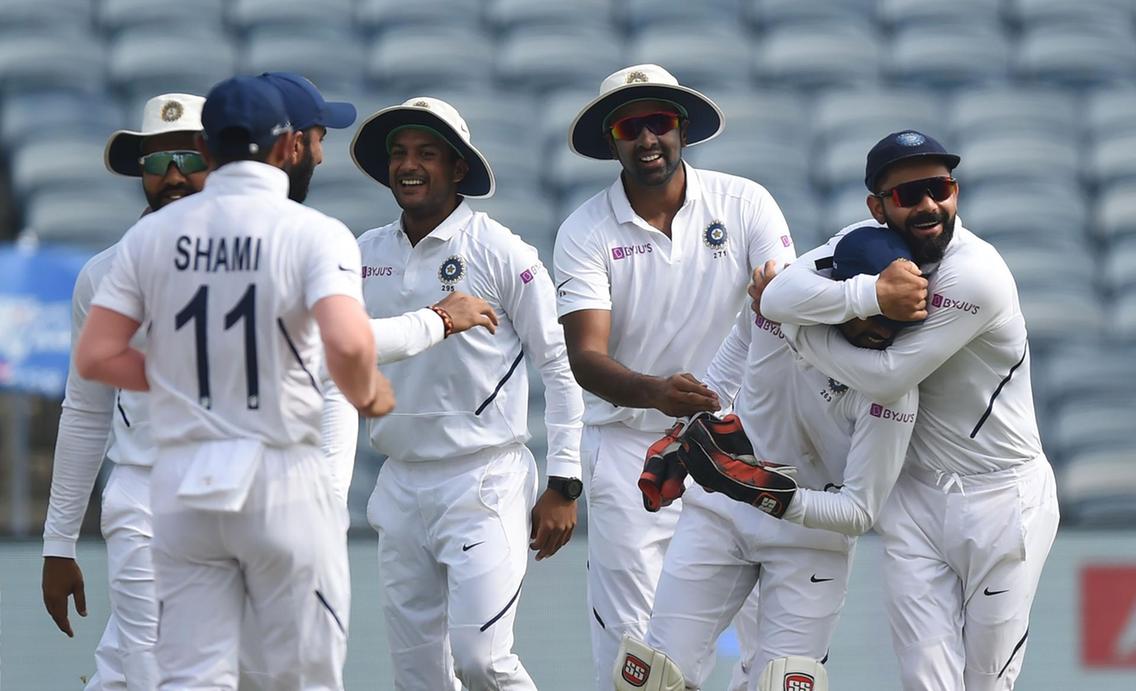India Beat South Africa, Secure Record 11th Straight Home Test Series Win
LAHORE MIRROR (Monitoring Desk)– India thrashed South Africa by an innings and 137 runs in the second Test in Pune to secure a record 11th straight home Test series win.
With the visitors trailing by 326 after the first innings, India enforced the follow-on and removed opener Aiden Markram for a second-ball duck.
South Africa then slipped to 129-7.
Vernon Philander (37) and Keshav Maharaj (22) resisted until India took the final three wickets for just four runs to dismiss the visitors for 189.
Fast bowler Umesh Yadav and slow left-armer Ravindra Jadeja both claimed three wickets, with off-spinner Ravichandran Ashwin taking two dismissals on day four.
World number one side India have an unassailable 2-0 lead in the series heading into the final Test in Ranchi, which starts on 19 October.
India’s run of consecutive Test series wins at home began with victory over Australia in February 2013. England were the last visiting side to win a series on Indian soil in December 2012.
They surpass the record of 10 consecutive home Test series wins held by Australia – who have done it twice, between November 1994 and January 2001, and then again between July 2004 and December 2008.
As well as Philander and Maharaj’s eight-wicket stand of 56, only opener Dean Elgar (48) and number five Temba Bavuma (38) dug in, with the rest of South Africa’s batsmen failing to reach double figures.
Philander and Maharaj had also combined for a ninth-wicket stand of 109 in the first innings as South Africa could only make 275 in reply to India’s 601-5 declared, in which captain Virat Kohli scored a stunning unbeaten 254.
India extend their lead over New Zealand at the top of the ICC World Test Championship, with four wins from four.
South Africa, ranked third in Tests, remain scoreless in the table after two straight defeats.
The Proteas’ next Test series will see them host England for four matches in December and January.
SOURCE: BBC NEWS

